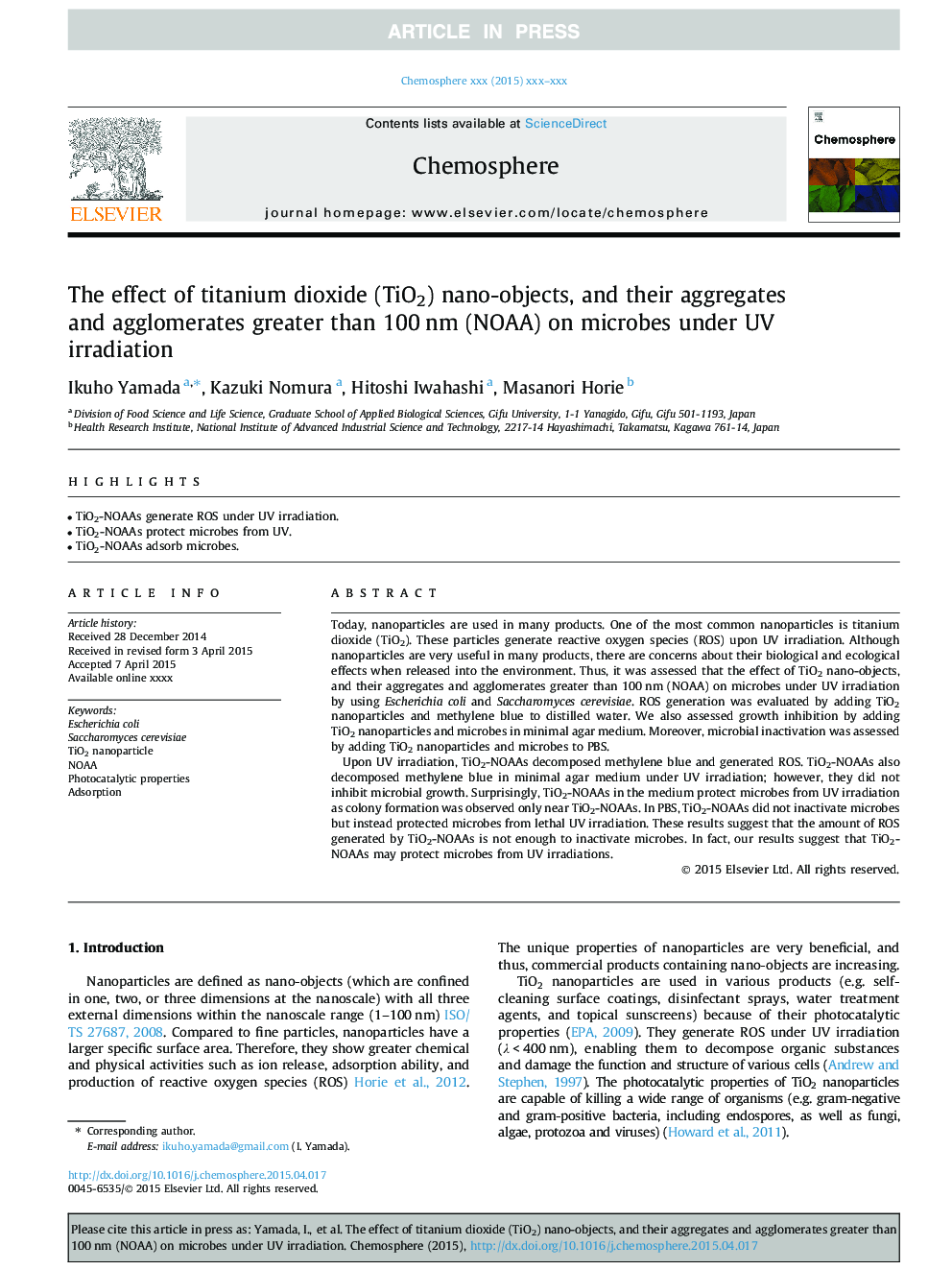| Article ID | Journal | Published Year | Pages | File Type |
|---|---|---|---|---|
| 6307257 | Chemosphere | 2016 | 5 Pages |
Abstract
Upon UV irradiation, TiO2-NOAAs decomposed methylene blue and generated ROS. TiO2-NOAAs also decomposed methylene blue in minimal agar medium under UV irradiation; however, they did not inhibit microbial growth. Surprisingly, TiO2-NOAAs in the medium protect microbes from UV irradiation as colony formation was observed only near TiO2-NOAAs. In PBS, TiO2-NOAAs did not inactivate microbes but instead protected microbes from lethal UV irradiation. These results suggest that the amount of ROS generated by TiO2-NOAAs is not enough to inactivate microbes. In fact, our results suggest that TiO2-NOAAs may protect microbes from UV irradiations.
Keywords
Related Topics
Life Sciences
Environmental Science
Environmental Chemistry
Authors
Ikuho Yamada, Kazuki Nomura, Hitoshi Iwahashi, Masanori Horie,
